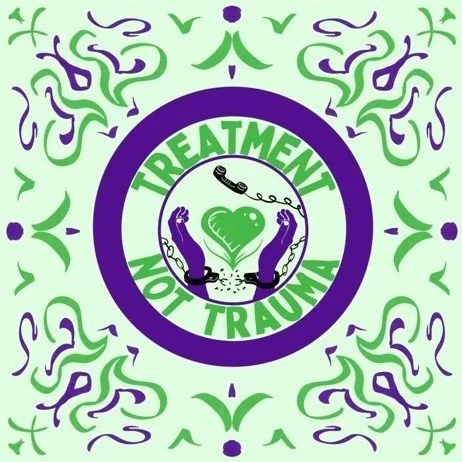Cops, clinics & mental-health crisis response: get the facts!
-
We’re fighting to:
1. Re-open all 14 closed Chicago Department of Public Health free mental-health centers, at least three of them open 24 hours per day. Longer-term, we look to win a free public mental-health clinic in each of the city’s 50 wards. Currently, in most neighborhoods, the City only provides funding to private mental-health nonprofits.
2. Establish non-police teams for responding to mental-health crises. Each should consist of a mental-health professional and an Emergency Medical Technician - EMT - NOT police. Currently the City is primarily piloting “multi-disciplinary” crisis response that includes police.
-
• Chicago once had 19 public mental-health clinics. Since 2012, only five have remained.
• Individuals with untreated mental illness are 16 times more likely to be killed in a police encounter (Treatment Advocacy Center).
• 23% of people killed by police in the US displayed signs of mental illness (Treatment Advocacy Center).
• More than 75% of Chicagoans live in communities with fewer than 1 therapist for every 5000 people. Most of these communities are communities of color.
-
• For someone experiencing a mental health crisis, a calm, slow, measured response provided by a mental-health professional is best. Police are trained to use violence to contain and control, often escalating situations.
• Police intervention often leads to incarceration, placing vulnerable people in an environment that can (1) worsen underlying mental health issues and (2) prevent adequate care.
-
• Recent mayoral administrations have pushed the City to spend its funds on clinics run by nonprofits rather than on clinics run by the City itself. Fewer than 25% of nonprofit clinic services are actually free. Even modest co-pays can present barriers for people most in need of treatment. Most Chicagoans cite cost - and not other factors like stigma - as their primary barrier to seeking mental-health services.
• By contrast, the City’s clinics are always free. Moreover, the City’s clinics never limit how many visits/sessions one can have, and they never limit their services based on one’s insurance or immigration status.
• Mental-health nonprofits usually have junior, poorly-paid clinicians who then burn out and quit. By contrast, Chicago’s public clinics have clinicians who are unionized, more decently paid, and stay at their jobs for many more years. Fundamentally, public clinics invest in a high-quality mental-health workforce.
• Public grants for nonprofit clinics are short-term; communities cannot rely on private providers to deliver services for the many years that Chicago’s traumatized communities need. By contrast, publicly-run clinics are infrastructure for care and ensure long-term sustainability.
• Nonprofit clinics are only accountable to private boards of directors, and lack public oversight. By contrast, public clinics are directly accountable to the elected City government that runs them.
-
• Yes! According to a city-wide survey, 86% of Chicagoans think there are NOT enough mental-health services in their neighborhood.
• When Chicagoans were asked if they would use a free, City-run mental health clinic in their neighborhood, 90% of respondents reported either “Yes” or “Probably Yes.”

